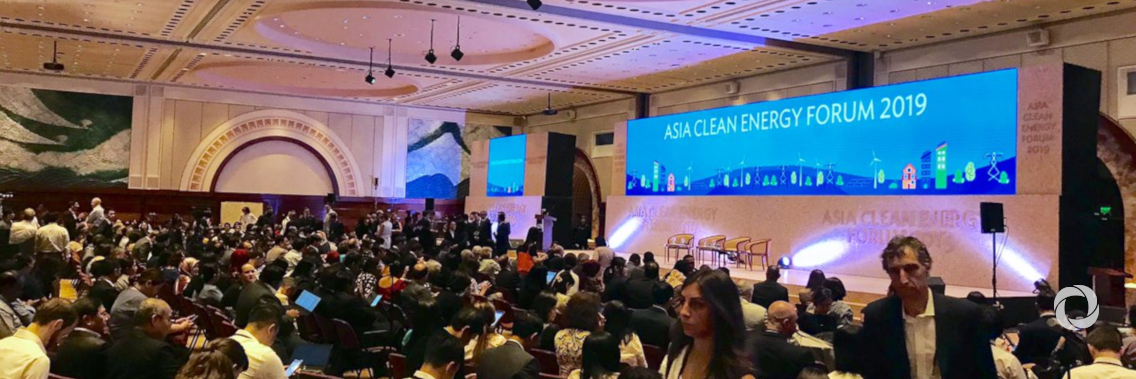The advancement of affordable and reliable clean energy is not only at the forefront of Asia and the Pacific’s development progress, but it is also at the heart of the region’s development of resilient infrastructure and fight against climate change, participants at the Asia Clean Energy Forum (ACEF) 2019 heard.
Co-hosted by the Asian Development Bank (ADB), the United States Agency for International Development, and the Korea Energy Agency, with the support of the International Energy Agency as the Knowledge Partner, ACEF 2019 is being held from 18–21 June under the theme “Partnering for Impact.” In line with this theme, the event is highlighting the need to focus on collaborative partnerships, ideas, and efforts that have market potential, with the goal of delivering tangible clean energy impact across the Asia and Pacific region.
Some 1,300 people will attend the event, including many from the private sector involved in clean energy development, as well as academicians, officials from governments, and representatives from nongovernment organizations and multilateral development banks. ACEF began in 2006 as an annual event to provide a platform for discussion and collaboration in promoting clean energy in Asia and the Pacific.
ADB President Mr. Takehiko Nakao participated in the opening panel discussion featuring Co-founder and Chief Scientist of the Rocky Mountain Institute Mr. Amory Lovins and Global Strategic Development Advisor and Member of the United Nations High-Level Panel on Women’s Economic Empowerment Ms. Fiza Farhan.
“A sustainable and secure energy supply remains essential as more than 350 million people still lack access to electricity in our developing member countries (DMCs). It is also a key part of the fight against climate change,” said Mr. Nakao. “People around the world are demanding affordable energy, clean air, and a more responsible approach to the environment. ACEF is a leading event in Asia and the Pacific that enables our DMCs and other participants to share their experiences and innovative ways to meet these critical demands.”
Through Strategy 2030, ADB has committed at least 75% of its operations to support climate change mitigation and adaptation efforts by 2030. Climate finance from ADB’s own resources will reach $80 billion for the period 2019–2030. Based on historical trends, ADB’s lending, equity, grants, and programs in support of renewable and energy efficiency could contribute significantly to this target.
ACEF 2019 features five thematic tracks based on key elements of Strategy 2030: energy and livable cities; energy and water sustainability; energy and rural poverty alleviation; energy and innovative finance; and clean energy technologies. There will be 21 workshops focusing on a range of topics, including radical energy efficiency, hydro mini-grids, electric vehicles, the empowerment of women in the energy sector, renewable energy systems, the future of cooling, and the food-energy-water nexus.
ACEF 2019 will be limiting its carbon footprint by purchasing carbon credits to offset the travel-related emissions of all participants. The event will also be paperless, with all program materials to be made exclusively available on ACEF’s website and mobile app.
Original source: ADB
Published on 18 June 2019

